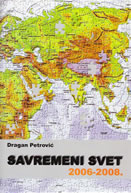| NSPM in English | |||
Dont neglect India |
 |
 |
 |
| уторак, 24. новембар 2009. | |
|
(Washington Post, November 23, 2009)
At one level the administration is being extremely friendly. India's prime minister, Manmohan Singh, comes to Washington this week for the first official state visit of the Obama presidency. There will be toasts and celebrations and many nice words said about the ties between the two great democracies. But underneath this lies an unease about the state of the relationship. Indian officials worry that the Obama team does not share the same fundamental orientation of the Bush administration regarding India's role in the 21st century. Some Obama officials publicly criticized the nuclear deal championed by George W. Bush, a deal that the Indians regard as basic recognition of their status as a major power. They worry that a Democratic administration could succumb to protectionism. They worry that it is too cozy with China. These concerns will pass as the two sides get to know each other. The more lasting danger is that the Obama administration, now intensely focused on the war in Afghanistan, will look at South Asia largely through that prism. Since Washington desperately needs Pakistan's cooperation in that conflict, it is tending to adopt Pakistan's concerns as its own, which is producing a perverse view of the region. In his leaked report, Gen. Stanley McChrystal warned that "increasing Indian influence in Afghanistan is likely to exacerbate regional tensions and encourage Pakistani countermeasures." This is a bizarre criticism. India is the hegemon of South Asia, with enormous influence throughout the subcontinent. Its gross domestic product is 100 times that of Afghanistan. As Afghanistan opened itself up after the fall of the Taliban, the culture, cuisine, movies and money that flowed into the country were Indian. This is like noting that the United States has had growing influence in Mexico over the past few decades. The Indian government's aid to Afghanistan has mostly gone to build schools and infrastructure. While New Delhi is trying to gain influence with the Kabul government, U.S. officials tell me that Indian intelligence has limited operations in Afghanistan. America should not want India to banish itself from its own subcontinent. In fact, India's objectives are exactly aligned with America's -- to defeat the Taliban and to support the elected Afghan government. Pakistan's objectives, on the other hand, are not the same as Washington's. Islamabad has long argued that it has a right to see a pro-Pakistani government in Afghanistan. Asia expert Selig Harrison has noted that in an interview with him in 1988, Pakistani President Mohammed Zia ul-Haq demanded "a regime to our liking" in Kabul. Last year a Pakistani general told the director of national intelligence that Pakistan had to support the Taliban in Afghanistan, "otherwise India will reign." Having created the Afghan Taliban, Pakistan has still not taken any steps to dismantle it. Even now, while attacking the Pakistani Taliban in South Waziristan, it has not disturbed the leadership of the Afghan Taliban in Baluchistan. The Obama administration has also seemed to endorse the idea that if only the dispute over Kashmir were resolved, Pakistan would suddenly attack all the terror groups it has supported over the years. Now, it's fair to say that India is far too prickly about Kashmir, but the only path to any resolution there will lie in building trust between Pakistan and India. That's unlikely to happen while Pakistan refuses to go after the terror group that also planned the Mumbai attacks, Lashkar-e-Taiba. Generals like McChrystal -- no matter how smart or tough -- should not make policy, because they confuse the imperatives of the battlefield with a broader view. Obama must keep in mind that South Asia is a tar pit filled with failed and dysfunctional states, save for one long-established democracy of 1.2 billion people that is the second-fastest-growing major economy in the world, a check on China's rising ambitions and a natural ally of the United States. The prize is the relationship with India. The booby prize is governing Afghanistan. Fareed Zakaria is editor of Newsweek International http://www.washingtonpost.com/wp-dyn/content/article/2009/11/22/AR2009112201239.html |
Од истог аутора
Остали чланци у рубрици
- Playing With Fire in Ukraine
- Kosovo as a res extra commercium and the alchemy of colonization
- The Balkans XX years after NATO aggression: the case of the Republic of Srpska – past, present and future
- Из архиве - Remarks Before the Foreign Affairs Committee of the European Parliament
- Dysfunction in the Balkans - Can the Post-Yugoslav Settlement Survive?
- Serbia’s latest would-be savior is a modernizer, a strongman - or both
- Why the Ukraine Crisis Is the West’s Fault
- The Ghosts of World War I Circle over Ukraine
- Nato's action plan in Ukraine is right out of Dr Strangelove
- Why Yanukovych Said No to Europe

.jpg)








 Barack Obama has been criticized for kowtowing to the Chinese and the Russians over the past few months. So far this is all about atmospherics. The administration has not made any unilateral concession of substance to either country. It is taking a strategic view that developing strong relationships with both countries, particularly China, will yield long-term benefits. Strangely, however, that focus has been lost in dealing with Asia's other rising giant, India.
Barack Obama has been criticized for kowtowing to the Chinese and the Russians over the past few months. So far this is all about atmospherics. The administration has not made any unilateral concession of substance to either country. It is taking a strategic view that developing strong relationships with both countries, particularly China, will yield long-term benefits. Strangely, however, that focus has been lost in dealing with Asia's other rising giant, India.










